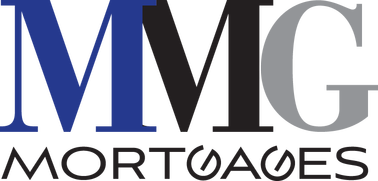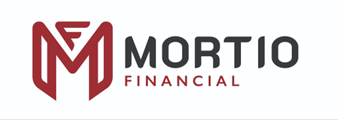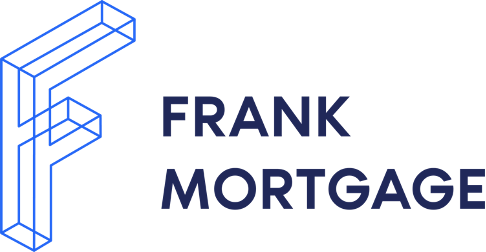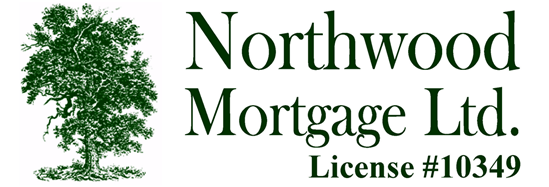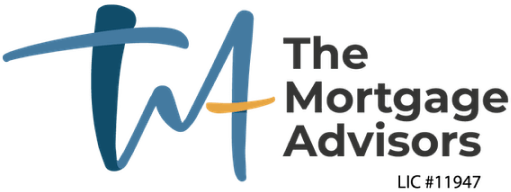Find the Best Variable Mortgage Rates in Canada
Compare the best variable mortgage rates from major banks, credit unions and mortgage brokers.
Compare best variable mortgage rates from lenders across Canada



Today's Best Mortgage Rates in Canada
Evaluate Canada’s best mortgage rates in one place. You can compare the most current mortgage rates and monthly payments from 175+ banks and lenders across Canada.
Rates are based on an average mortgage of $500,000 and subject to change based on filter criteria.
| Lender
|
Insured
|
Insurable
|
Uninsured
|
|---|---|---|---|
|
MMG Mortgages
|
3.99%
$2,627.39 / month
|
4.19%
$2,681.85 / month
|
4.14%
$2,668.19 / month
|
|
Mortio Financial Corp
|
3.99%
$2,627.39 / month
|
4.24%
$2,695.56 / month
|
4.14%
$2,668.19 / month
|
|
Frank Mortgage
|
4.09%
$2,654.55 / month
|
4.19%
$2,681.85 / month
|
4.09%
$2,654.55 / month
|
|
Northwood Mortgage Ltd.
|
4.14%
$2,668.19 / month
|
4.24%
$2,695.56 / month
|
4.24%
$2,695.56 / month
|
|
Innovation Federal Credit Union
|
4.39%
$2,736.87 / month
|
4.39%
$2,736.87 / month
|
4.39%
$2,736.87 / month
|
|
True North Mortgage
|
2.99%
$2,363.66 / month
|
2.99%
$2,363.66 / month
|
2.99%
$2,363.66 / month
|
|
The Mortgage Advisors
|
3.87%
$2,594.98 / month
|
3.87%
$2,594.98 / month
|
3.87%
$2,594.98 / month
|
|
Nesto
|
3.91%
$2,605.76 / month
|
3.91%
$2,605.76 / month
|
3.91%
$2,605.76 / month
|
|
Hypotheca
|
3.94%
$2,613.86 / month
|
3.94%
$2,613.86 / month
|
3.94%
$2,613.86 / month
|
|
MortgagestoGo
|
3.94%
$2,613.86 / month
|
3.94%
$2,613.86 / month
|
3.94%
$2,613.86 / month
|
|
One Link Mortgage & Financial
|
3.95%
$2,616.57 / month
|
3.95%
$2,616.57 / month
|
3.95%
$2,616.57 / month
|
|
Monster Mortgage
|
3.99%
$2,627.39 / month
|
3.99%
$2,627.39 / month
|
3.99%
$2,627.39 / month
|
|
The Police Credit Union
|
3.99%
$2,627.39 / month
|
3.99%
$2,627.39 / month
|
3.99%
$2,627.39 / month
|
|
Northern Birch Credit Union
|
3.99%
$2,627.39 / month
|
3.99%
$2,627.39 / month
|
3.99%
$2,627.39 / month
|
|
City Wide Financial Corp
|
3.99%
$2,627.39 / month
|
3.99%
$2,627.39 / month
|
3.99%
$2,627.39 / month
|
|
Sudbury Credit Union
|
3.99%
$2,627.39 / month
|
3.99%
$2,627.39 / month
|
3.99%
$2,627.39 / month
|
|
Mainstreet Credit Union
|
3.99%
$2,627.39 / month
|
3.99%
$2,627.39 / month
|
3.99%
$2,627.39 / month
|
|
East Coast Mortgage Brokers
|
4%
$2,630.10 / month
|
4%
$2,630.10 / month
|
4%
$2,630.10 / month
|
|
Prospera Credit Union
|
4.04%
$2,640.95 / month
|
4.04%
$2,640.95 / month
|
4.04%
$2,640.95 / month
|
Canada's Best Mortgage Rates By Mortgage Term
Evaluate Canada’s best mortgage rates in one place. RATESDOTCA’s Rate Matrix lets you compare pricing for all key mortgage types and terms.
Rates are based on an average mortgage of $500,000 and subject to change based on filter criteria.
Updated 19:00 on Jul 18, 2025| Placeholder |
Insured
The rates in this column apply to borrowers who have purchased mortgage default insurance.
This is required when you purchase a home with less than a 20% down payment.
The home must be owner-occupied and the amortization must be 25 years or less.
|
80% LTV
The rates in this column apply to mortgage amounts between 65.01% and 80% of the property value. The home must be owner-occupied and have an amortization of 25 years or less. You must have purchased it for less than $1 million. These rates are not available on refinances. Refinances require "Uninsured" rates.
|
65% LTV
The rates in this column apply to mortgage amounts that are 65% of the property value or less. The home must be owner-occupied and have an amortization of 25 years or less. You must have purchased it for less than $1 million. These rates are not available on refinances. Refinances require "Uninsured" rates.
|
Uninsured
The rates in this column apply to purchases over $1 million, refinances and amortizations over 25 years. More info on the differences between insured and uninsured rates.
|
Bank Rate
Bank Rate is the mortgage interest rate posted by the big banks in Canada.
|
|---|---|---|---|---|---|
| 1-year fixed rate | 4.69% | 4.19% | 4.19% | 5.59% |
5.49%
|
| 2-years fixed rate | 4.04% | 3.89% | 3.89% | 4.54% |
4.79%
|
| 3-years fixed rate | 3.87% | 3.99% | 3.99% | 4.24% |
4.29%
|
| 4-years fixed rate | 3.99% | 3.99% | 3.99% | 4.44% |
4.39%
|
| 5-years fixed rate | 3.91% | 3.89% | 3.89% | 3.91% |
4.09%
|
| 7-years fixed rate | 4.39% | 4.24% | 4.24% | 5.19% |
5.00%
|
| 10-years fixed rate | 5.04% | 4.34% | 4.34% | 5.29% |
6.09%
|
| 3-years variable rate | 4.15% | 4.30% | 4.30% | 4.40% |
6.35%
|
| 5-years variable rate | 3.95% | 3.95% | 3.95% | 4.05% |
4.25%
|
| HELOC rate | N/A | N/A | N/A | N/A |
N/A
|
| Stress Test | 5.25% | 5.25% | 5.25% | 5.25% |
N/A
|
Rates are based on a home value of $500,000
Rates are based on a home value of $500,000
Rates are based on a home value of $500,000
What is a variable rate mortgage?
A variable, or “floating,” rate mortgage has an interest rate that fluctuates with your lender’s prime rate.
Banks and other mortgage lenders base their prime rate on the Bank of Canada’s target overnight rate, or “policy interest rate.” When the Bank of Canada adjusts this rate, it almost always results in a change to each lender’s prime rate. That in turn impacts borrowers’ variable rates, and their monthly payments. When monthly payments change with prime rate, it’s called an adjustable-rate mortgage (ARM).
However, if you have a fixed-payment variable rate, the monthly payment will remain constant even if your mortgage rate fluctuates. For example, if interest rates were to fall, the amount of your payment going towards principal reduction would increase while the interest portion would decrease. Similarly, if rates were to increase, more of your payment would go towards the interest.
Variable rates are typically in highest demand when the prime rate is expected to drop (e.g., entering a recession), and when the difference between fixed and variable rates is over one percentage point.
One advantage of having a variable-rate mortgage is that prepayment penalties are typically limited to just three months' interest should you need to break your mortgage early. The penalties on fixed-rate mortgages, on the other hand, are calculated using the greater of three months’ interest or the Interest Rate Differential (IRD). IRD can end up costing some borrowers five figures to break their mortgage.
Floating-rate mortgages also give you an option to “lock in” to a fixed rate at any time during your mortgage term. This is useful if you expect mortgage rates to rise and want to secure a rate for the remainder of your term.
Pro Tip: You can calculate your mortgage payments based on different interest rate scenarios using our Mortgage Payment Calculator.
Learn more here about fixed vs. variable-rate mortgages.
Types of variable mortgages
Like fixed rates, there are two types of floating-rate mortgages: closed and open.
Closed variable mortgage: A closed mortgage involves a regular repayment schedule that typically only allows limited prepayment options. Lenders commonly allow you to make extra payments of 5% to 30% of the original loan amount in any given year. Many also allow increases to your monthly mortgage payments by similar amounts.
Open variable mortgage: Just like a closed mortgage, there is a regular payment schedule set out for the borrower. The difference is, an “open” involves more flexible options to pay down the mortgage. Those with an open term can increase their regular payments or make lump-sum prepayments of any amount (including the entire loan amount) and at any time without penalty. Open variable mortgage rates are typically at least 1.50 percentage points higher than closed mortgages due to this flexibility. You’re often better getting a deep-discount home equity line of credit (HELOC) at a much cheaper floating rate than an open variable.
Variable Mortgage Terms
Here’s a rundown of the most common variable-rate mortgage terms…
1-year variable: Few borrowers choose a 1-year variable rate. Because they’re so rare, they typically entail a premium that make them a notably more expensive choice compared to the 3- and 5-year variables. Most borrowers would be better off choosing a 1-year fixed rate, although 1-year variables entail a lower prepayment penalty and can be converted to a fixed rate at any time.
3-year variable: A 3-year variable-rate mortgage is a great option for homebuyers who are looking for a variable interest rate with a short-term commitment, particularly if there is a chance you may need to sell your home or re-negotiate your mortgage in the not-too-distant future. The rates are usually higher than 5-year variables, however.
5-year variable: After the 5-year fixed, a 5-year variable is the second-most popular mortgage term in Canada. In 2019, about one out of five mortgagors took out a variable rate, according to data from Mortgage Professionals Canada. They’re ideal for those who want a standard 5-year term, but who think rates will remain low. They may also be suitable if there’s a good a chance you’ll need to break the mortgage before maturity (given their lower prepayment penalties).
Variable Mortgage Rate Pros and Cons
Fixed and variable rates each come with their own pluses and minuses. Here are some pertaining to variable rates…
Cons
- Monthly payment risk. With adjustable-rate mortgages, you face more budgetary risk because rates can potentially rise over the course of your term. That could result in an immediate increase to your monthly mortgage payment. Although, fixed-payment variable-rate mortgages don’t have this problem.
- Rate uncertainty. Given that you can’t predict what your interest rate will be by the end of your term, choosing a variable rate entails a certain amount of risk. As a result, they’re not recommended for those prone to losing sleep over where their interest costs may be headed. If you’d rather set your mortgage rate and forget about it for five years, a fixed rate may be a better choice.
- Increase Limitations. Unlike many fixed rates, you cannot increase most variable-rate mortgages before maturity (without a cost). That cost could entail losing your interest rate or paying a penalty. So, if you might need to move or refinance before five years, plan on paying a penalty if you take a variable rate—depending on the lender.
Pros
- Lower prepayment penalties. As mentioned above, one of the biggest benefits of a variable-rate mortgage—aside from interest savings—is their limited prepayment penalties. The charge for breaking a variable-rate mortgage is almost always a maximum of three months’ interest. Compare that to breaking a fixed-rate mortgage, which can result in extreme interest rate differential (IRD) charges.
- History of rate outperformance. Having a floating rate lets you to take advantage of lower rates when interest costs are falling. Research has also found that over the long-run, mortgage borrowers with variable rates generally come out ahead of fixed-rate borrowers anywhere from over 50% to over 80% of the time.
Pro Tip: This isn’t always true. Some “low-frills” mortgages have much higher penalties than just three months’ interest. Some, for example, charge you 3% of principal for breaking the contract.
Frequently asked questions about variable rate mortgage
Here’s everything you must be wondering about variable-rate mortgages.
Is a variable-rate mortgage better than a fixed-rate mortgage?
Choosing the best mortgage for you depends on your mortgage affordability. When you choose a fixed-rate mortgage, your monthly mortgage payments will stay the same for the term of your mortgage, allowing you to predict your mortgage costs during the mortgage term and budget accordingly. Fixed-rate mortgages are generally higher than variable-rate mortgages.
When you have a variable rate mortgage, your mortgage rate will change with the prime lending rate set by your lender. If the interest rate decreases multiple times during the course of your mortgage term, you can pay off your mortgage principal faster. A variable-rate mortgage also means that the amount that goes to your mortgage principal will fluctuate when the rate increases or decreases, even though your mortgage payment amounts remain the same. This means that you’ll face surprises during your mortgage term, as the rates won’t be stable or constant.
You can calculate your Mortgage Affordability to see what kind of mortgage scenarios work for you. A Mortgage Payment Calculator can help you see what your future mortgage payments will look like.
When it comes to picking a mortgage, comparing multiple quotes can help you find the perfect fit. Compare the best mortgage rates on RATESDOTCA today.
How do you lock your interest rate?
If you have a variable-rate mortgage, your interest rate can vary throughout the term. This makes it important for you to lock-in a favorable interest rate if you are allowed to do so by your lender. Locking the interest rate guarantees a certain interest rate for a specific period, normally between 30 and 60 days.
Most lenders allow you to lock your interest rate as soon as your initial loan is approved. Some lenders may charge a fee to lock in your interest rate. Always ask questions so you know what charges to expect from your lender. Make sure you consult with an experienced mortgage broker and read your mortgage terms and conditions thoroughly.
What does my mortgage payment include?
As a first-time homebuyer you must be wondering where does your whole monthly mortgage payment go! Your monthly mortgage payment goes toward the following costs:
- Principal amount
- Interest charges
- Homeowners insurance
- Property taxes
- CMHC, if you put down less than 20% on your home
If you want to pay more towards your principal amount, check the prepayment options in your mortgage contract to pay off your principal faster.
Mortgage Calculators
Land Transfer Tax Calculator
Home Closing Cost Calculator
Home Sale Proceeds Calculator
Mortgage Payment Calculator
Mortgage Renewal Calculator
Mortgage Affordability Calculator
Mortgage Stress Test Calculator
Mortgage Insurance Calculator
Land Transfer Tax Calculator
Home Closing Cost Calculator
Home Sale Proceeds Calculator
Find a mortgage broker
Engaging a mortgage broker before renewing can help you make a better decision. Mortgage brokers are an excellent source of information for deals specific to your area, contract terms, and their services require no out-of-pocket fees if you are well qualified.
Here at RATESDOTCA, we compare rates from the best Canadian mortgage brokers, major banks and dozens of smaller competitors.



